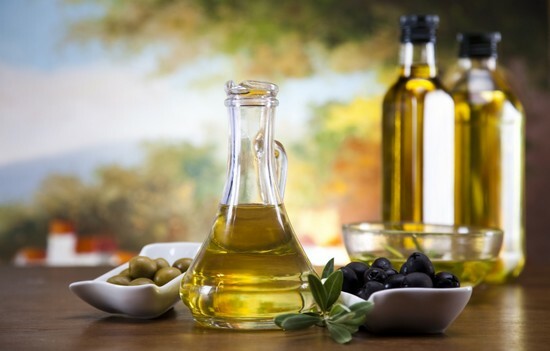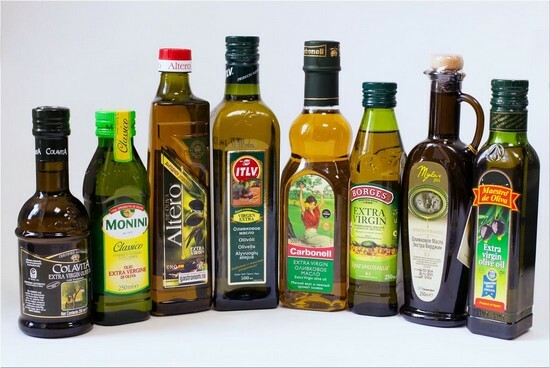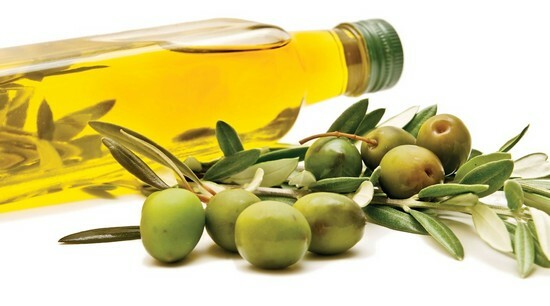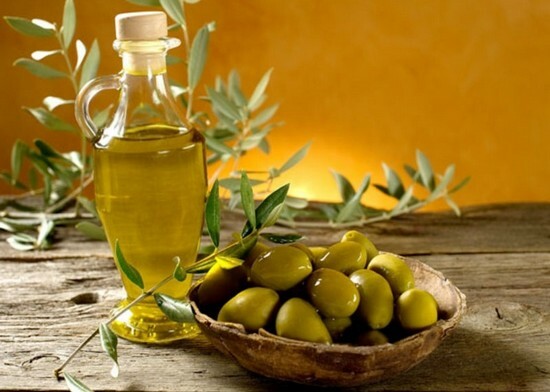- Complexity of choice
- Types of olive oil
- Define a quality product
Today we will talk about how to choose olive oil. At first glance, it may seem that there is nothing complicated in this, but in fact there is a rather big risk, because among the diversity store presented on the shelves you can easily purchase a poor-quality product.

The complexity of choosing
This legendary food product for many centuries has brought great benefits to mankind. Olive oil is actively used in cooking, where it prepares delicious sauces, dressings for salads and add to a variety of dishes. In addition, its composition contains useful substances that help beauties around the world to successfully care for the skin and hair. And since the range of olive oils offered is very wide, it is very difficult to choose the right product.
First of all, remember that the first producer of olive oil is Italy. In addition to this country it is also implemented:
- Cyprus;
- Turkey;
- Greece;
- Israel;
- France
- Spain.
Note! On the shelves of our shops, olive oil comes from Italy and Spain.
But not only the country of manufacture is the main criterion of choice. In relation to this product, there are a large number of classifications and at the discretion of the manufacturer, certain categories and names can be assigned to it. And in order to simplify your task a little while choosing, it is desirable to pay attention to the following tips that will help you acquire the necessary olive oil.

Types of olive oil
Everyone knows that olive oil can be refined or unrefined. The first type is used mainly in the preparation of dishes that are subjected to heat treatment. The second one - most often it is used fresh as in cooking, and in self-care.
Refined product
If we talk about refined vegetable oil, then calling it natural is difficult. It will not be of use when used for medicinal purposes, or during cosmetic procedures. But at the same time you can fry on it without fear, since when heated in such oil, no carcinogenic substances are formed. Plus, it does not affect the taste of the prepared dish, since it has a neutral flavor. Store this product longer than unrefined oil and costs a little less.
Now let's look at the inscriptions that are usually present on the labels of the refined olive oil:
- "Pure olive oil" or "Olive oil" - this product is a mixture of high-quality Extra Virgin oil and refined oil.
Note! The oil obtained by mechanical pressing of fruits gives the refined product a characteristic color and notes of taste of natural oil!
- "Light olive oil" - it is considered ideal for frying. And even with its repeated use, health damage will not be caused.
- "Pomace olive oil" or "Olive-Pomace Oil" - this oil is in the lowest price category, as it contains a small amount of the product "Extra Virgin".In addition, it is produced from the cake left after the first pressing oil. Add it mainly in the preparation of hot dishes.

Unrefined product
Unrefined vegetable oil, you can fully use for personal care, and for health. It is produced by the method of cold pressing, that is, in the manufacturing process, chemicals are not used. Thus, the finished product is characterized by a high content of nutrients, which will greatly benefit the body and take care of the condition of the skin and hair.
Natural olive oil has a special flavor and aroma. It is enough only to try it and you can fully enjoy that incredible bouquet of taste sensations, which he gives with each drop. In the store it can be recognized by the inscription "virgin", which means - produced by mechanical means and is absolutely natural. In other words, the manufacturing process consists of washing fresh olive fruit, further drying and pressing. The final stage is filtration.
How to choose unrefined olive oil? This will help the following notation:
- "EVOO" with the additional marking "Extra virgin"( depending on the country of manufacture, the attachment may also sound like "Extra vergine" or "Extra vierge") - a natural product that belongs to the extra class. Characterized by the highest quality and obtained by the method of the first pressing at low temperatures - no more than 27 °.
- "D.O.P." - this additional marking indicates that you have the best branded oil in front of you. It is considered exclusive and is the subject of adoration of all self-respecting gourmets. They extract it only from those fruits that grow in a certain locality, and they are poured immediately at the place of manufacture. Extra virgin oil with the prefix "D.O.P." meets the highest requirements and is repeatedly tested for quality.
- "Virgin" without additional labeling "Extra" - this oil is also considered to be completely natural. But for its production, olive fruits are used, which are of lower quality, and the production takes place without heating. As a result, his taste is somewhat affected.

Defining a quality product
So, in the types and markings we figured out, it remains only to find out how to choose quality olive oil.
- The "younger", the better - the date of production is the main parameter when choosing. Be sure to pay attention to the manufacturing time and the expiration date. As a rule, every conscientious producer marks on the label all the necessary dates.
Important! A quality product can not be stored for more than 18 months!
- Taste is intense, intense enough, a bit of bitterness, sweetness, salty or sour taste is possible. At the same time, metal, acetic or too bitter taste is completely excluded - this is a clear defect.
- Color - the palette is quite diverse and includes all shades of gold and green. This criterion is influenced by the variety of fruits and the method of their processing. Acidity - a quality product has a low level of acidity, but for each species there is an indicator: "Extra virgin" - no more than 1%, "Virgin" - 2%, refined - up to 1,5%.
You can determine the quality of olive oil at home. To do this, it should be left in the refrigerator for a couple of days: if after this period it will be formed a light sediment, then you have acquired a quality product. In this case, the precipitate should disappear after the oil is slightly at room temperature.
And remember that it is better to store it away from the plate, preferably in a dry place at a constant temperature of about 10-15 ° C.And do not leave the product on the table or on the windowsill, where it will be exposed to the sun's rays. By the way, it is for this reason that it is poured into a container of dark glass. Plus, the quality will be preserved if you do not keep the oil open for long periods, as it may oxidize when it comes into contact with air.
